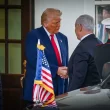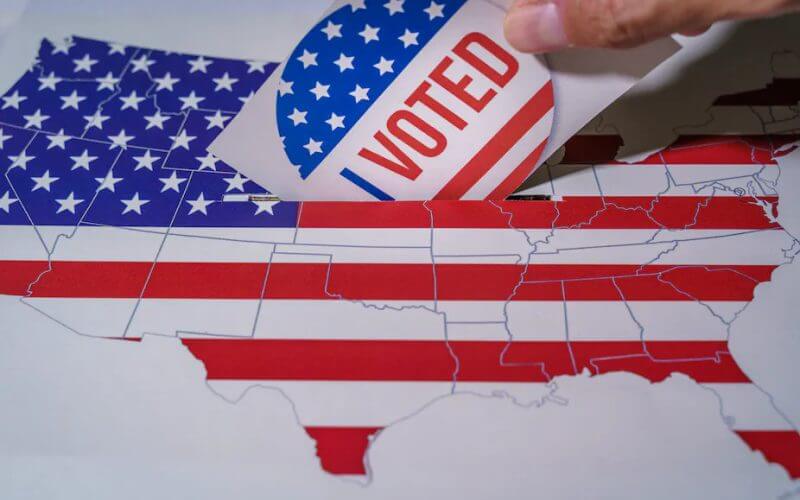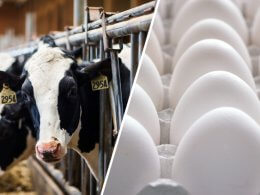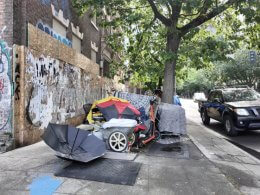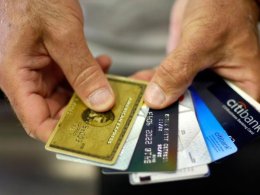The Democrat-led movement to lower the legal voting age to 16 — or in some cases even younger — is gaining momentum nationwide, scoring local victories while winning the support of lawmakers and activists on the political left.
The campaign's latest win came in Boston, where the City Council on Wednesday approved a petition allowing 16- and 17-year-old residents to vote in municipal elections.
The petition will now be sent to the Massachusetts Legislature for approval, which isn't guaranteed. Several other towns and cities in Massachusetts have voted for similar proposals, which then failed to pass the state House.
Progressive members of the City Council argued that lowering the voting age would help young people build a habit of voting and make them more likely to continue being politically engaged later in life.
"We don't apply a maturity index to the right to vote for any other age," City Councilor Kenzie Bok, who sponsored the petition, told the Boston Globe. "Having the opportunity to vote is what gives our 16- and 17-year-olds a chance to engage meaningfully."
Others argued it's unfair that teenagers can have adult responsibilities and play active roles in society but don't have a say in public life.
"Young people are working, paying taxes," said City Councilor Julia Mejia, who cosponsored the petition. "When it comes to making a decision as to who's going to represent them, that has been denied to them."
Mejia also dismissed the notion that 16- and 17-year-old kids may not be mature enough to make important political decisions, saying that "oftentimes it's young people who are educating their parents and their uncles and aunts and older folks about who's running for office and why they should vote."
The push to allow underage children to vote has prompted outcry and legal challenges from election experts opposed to the effort.
"This is a foolish, cynical move by Boston and other jurisdictions," Hans von Spakovsky of the Heritage Foundation told Just the News. "Under the law, 16- and 17-year-olds are minors. They can't sign contracts or leases, buy alcohol, join the military, serve on a jury, or engage in a host of other activities that only legal adults are qualified to engage in because we as a society have judged that they have not yet developed the experience and judgment to make such decisions. They aren't even treated as adults when they commit crimes, except under exceptional circumstances, for the very same reason."
If children under 18 can be "trusted in matters affecting our democracy," asked Spakovsky, then when will policymakers change the law to make people legal adults at 16 so minors can make an array of decisions from which they're currently barred?
Critics of lowering the voting age often cite the fact that a teen's brain isn't fully developed, not reaching full development until about the age of 25. According to one oft-cited study on this subject from 2006, "research in neuroscience suggests that the brain, specifically the prefrontal cortex, is still undergoing major reconstruction and development during the teenage years." The study noted that the prefrontal cortex is what "enables us to weigh dilemmas, balance trade-offs, and, in short, make reasonable decisions in politics."
If the voting-age measure passes in Boston, then the city will join two others in California — Oakland and Berkley — and five others in Maryland — Takoma Park, Hyattsville, Greenbelt, Riverdale Park, and Mount Rainer — that permit 16- and 17-year-olds to vote in municipal elections. (Alameda County, where Oakland and Berkeley are located, has yet to implement the measure in either city.)
Another area of Maryland pushing to lower the voting age is Howard County, where the Board of Education is comprised of eight members, including one reserved for a student elected by their peers in grades six through 11. Sixth graders are typically 11 or 12 years old.
The Public Interest Legal Foundation is suing Howard County to block the measure allowing this procedure, arguing it improperly gives minors too much political power and allows children only in public schools — but not religious ones — to vote.
"They want to infantilize voting by allowing children to vote," J. Christian Adams, president of the Public Interest Legal Foundation, told Just the News. "They think that's their next big constituency. Allowing kids as young as sixth grade to vote for school board — it's like 'Lord of the Flies.' Children are getting more political power than adults, and they don't even allow children in Catholic schools to vote."
Across the Potomac, a Virginia Democrat submitted a bill last week to be introduced in the 2023 General Assembly for a constitutional amendment to lower the voting age for local elections to 16.
"If we can get 16 and 17 year old's the ability to vote in at least local elections, it will empower them to think about their civil responsibility," said Delegate Sam Rasoul, who echoed many of the points made by Boston City Council members about young people not having a say despite being affected by important decisions and the desire to get young people to partake in the political process.
In Culver City, Calif., meanwhile, a ballot initiative to allow residents as young as 16 to vote in city and school board elections appears to have fallen slightly short in last month's midterm elections, although the vote count hasn't been finalized. Regardless, proponents of the so-called "Vote 16" movement are encouraged.
"The movement continues to grow in interest and strength," Andrew Wilkes of the group Generation Citizen told the Los Angeles Times. "This lays the groundwork for the baton to be passed to rising high school students."
At the federal level, Rep. Grace Meng (D-N.Y.) introduced legislation last year to amend the Constitution to make 16 the national minimum voting age.
"Our young people, including 16- and 17-year-olds, continue to fight and advocate for so many issues that they are passionate about from gun safety to the climate crisis," Meng said at the time. "Their activism, determination, and efforts to demand change are inspirational and have truly impacted our nation. It's time to give them a voice in our democracy by permitting them to be heard at the ballot box. 16- and 17-year-olds are legally permitted to work and drive. They also pay federal income taxes. I believe that it is right and fair to also allow them to vote."
Critics contend such arguments disguise the chief motive of those in power pushing this effort: gaining more votes.
"Why would officials suddenly consider that minors have the ability and judgment to make important political decisions when they don't trust them to make any of these other decisions [such as signing a contract or serving on a jury]?" asked von Spakovksy. "Nothing other than politics and the belief it will somehow help them get elected. This is a crass motive and a betrayal of all of their other constituents and particularly voters whose votes will be diluted by children."
A near-record 27% of voters aged 18 to 29 cast ballots in this year's midterm elections, the second-highest turnout in three decades, according to an analysis of exit poll data by Tufts University's Center for Information & Research on Civic Learning and Engagement. Across the country, these young voters overwhelmingly supported Democrats over Republicans.
Beyond potentially gaining more votes by lowering the voting age, some observers see the Vote 16 push as part of Democrats' broader effort since the 2020 election cycle to change a host of voting rules, such as instituting universal mail-in voting.
"Of course this is part of the Democrats' effort to constantly keep changing the election laws in ways that they believe will help them electorally," Cleta Mitchell, an attorney who chairs the Election Integrity Network, told Just the News. "That's their way: Manipulate the process to impact the outcome. And this is the same party that insisted that 'children' should be able to remain on their parents' health care policy until they were 26 because they weren't able to take care of themselves ... It is only and always about advancing their own power."
Last year, 125 House Democrats voted in favor of an amendment to the For the People Act, which included several Democrat-backed election rule changes, to add a provision to the legislation lowering the voting age for federal elections to 16.
Vote16USA, a group pushing for the voting age to be lowered to 16, argues it's important to make voting a "habit" for life, 16- and 17-year-olds are ready to vote and deserve a "stake in the game," and lowering the voting age will "strengthen civics education."
Regarding the last point, former Kansas Attorney General Phill Kline, an election integrity expert who founded the Amistad Project, argued that Democrats are "capturing" young voters through what's being taught at public schools, noting the For the People Act includes provisions providing federal funding to K-12 schools for educational programs about elections.
"What you've got is a concerted, coordinated effort to gain voters, with government playing a partisan game," said Kline.
Regardless of one's view on lowering the voting age, it's an issue that's here to stay — and one that's only gaining momentum.
"This is not a fluke; do not think this is a joke," said Adams. "They are serious about this, and it's coming soon to your area


